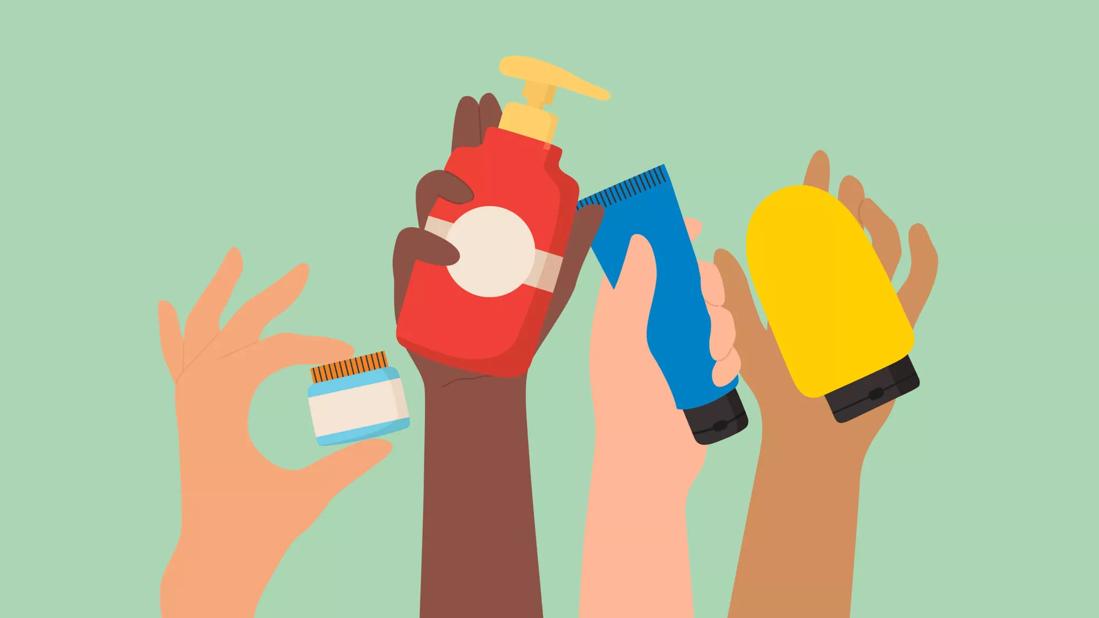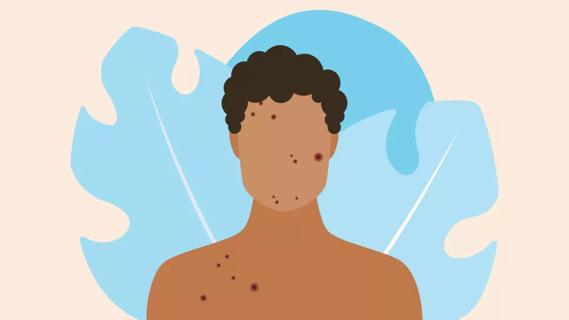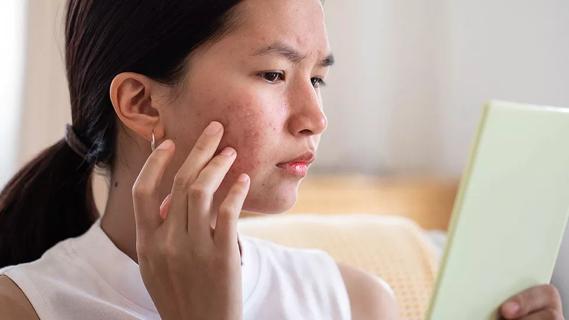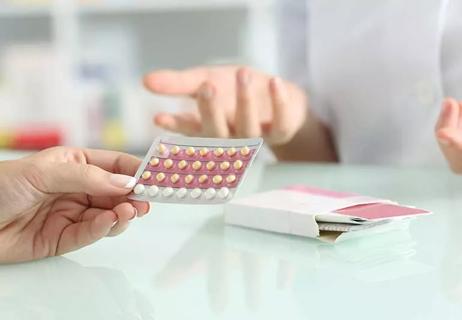Look for a formula with either benzoyl peroxide or salicylic acid

Right along with brushing your teeth, you probably also wash your face every day. Removing the dirt, grime and makeup that sits on your skin’s outer layer helps keep your face clean and clear.
Advertisement
Cleveland Clinic is a non-profit academic medical center. Advertising on our site helps support our mission. We do not endorse non-Cleveland Clinic products or services. Policy
And if you have acne, you may be wondering if the cleanser you’re using is right for you. Is it really killing any pollutants or bacteria? Should you be using an exfoliating face wash? Or one that’s medicated?
From whiteheads to blackheads, the pimples and bumps we deal with on our faces can be hard to tame.
So, when it comes to choosing the best acne face wash, dermatologist Vickie Baker, MD, explains what ingredients to look for and why it pays to know what type of acne you have, along with your skin type.
There are different kinds of acne, and knowing which type you have can help dictate what kind of treatment — including the best face wash — will work best for you.
The types of acne include:
Advertisement
“Once you know which type of acne you have, you can get advice on how to treat it,” says Dr. Baker. “For example, cystic acne usually needs medical treatment to reduce lesions.”
And knowing the type of skin you have — whether that’s dry, oily, sensitive, combination or acne-prone — can also play a factor in what type of cleansing product you use.
“If you have sensitive skin, you want to use a creamy face wash,” Dr. Baker says. “You want to watch out for gel-type face washes, as they tend to dry out sensitive skin since they’re alcohol based.”
Overall, foaming cleansers or gel-based options can dry out skin. Creamy formulas tend to provide more hydration.
When it comes to fighting acne, there are a few key ingredients that Dr. Baker says you should look for in your skin care.
“These ingredients are important when you’re talking about acne because you need to reduce the oils and the bacteria that sit on your skin,” she adds.
Most products usually have one ingredient — either benzoyl peroxide or salicylic acid — not both. And you may see other ingredients like green tea or tea tree oil in face washes, with the goal of adding extra benefits like soothing skin or calming redness.
“Some other ingredients may have some properties like fighting inflammation,” says Dr. Baker. “But you have to be careful to make sure any added ingredients don’t irritate your skin.”
A pro tip? Dr. Baker says that if you’re using a washcloth with a benzoyl peroxide, you should use a white one. “It will bleach any colored washcloth you use.”
You want to avoid using any cleansers that contain harsh exfoliating ingredients.
“If you over-exfoliate, you’re going to get dried out, irritated skin which can make your acne worse,” warns Dr. Baker.
She also cautions against using any products with anti-aging ingredients if you struggle with acne.
“Most anti-aging products can irritate the skin,” she continues. “Ingredients like retinol can overly irritate the skin.”
And steer clear of acne face washes that use sulfates, which are known to dry out your skin by washing away any healthy fats or lipids. Choose noncomedogenic products that won’t clog your pores.
Advertisement
If you have acne, you should wash your face twice a day — in the morning and at night.
“There’s no need for cleansing more than twice daily,” states Dr. Baker. “If you do it too often, you’re just going to keep stripping your skin of oils.”
And cleansing your face with an acne-fighting face wash is easy and should be the cornerstone of your skin care routine. Just apply the face wash to wet skin using your fingers. Massage gently, avoiding scrubbing your skin too hard. Then, rinse off with warm water and pat your face dry with a soft, clean towel.
“You don’t have to leave your face wash on for too long because there’s some residue that stays on the skin that contributes to treating your acne,” she says.
Using a face wash that contains acne-fighting ingredients is a great first line of defense against pimples and breakouts.
But if you need some additional support, Dr. Baker says that there are plenty of other over-the-counter ingredients that are geared toward battling acne.
“These products also typically contain benzoyl peroxide and salicylic acid,” she says. “They come in a gel [which are different from gel face washes] or lotion that you can put on and leave on all day or all night.”
Advertisement
You may also want to try adapalene, another acne-fighting ingredient that helps open up your pores.
And if over-the-counter products aren’t working for you, a healthcare provider or dermatologist can help come up with a plan that works for you, your skin type and type of acne.
“Once we know the type of acne and your skin type, then we can formulate a medical treatment plan,” encourages Dr. Baker. “Each treatment plan is different for every person.”
Advertisement

Sign up for our Health Essentials emails for expert guidance on nutrition, fitness, sleep, skin care and more.
Learn more about our editorial process.
Advertisement

It’s best to avoid picking at zits, which can damage your skin (though there are ways to minimize the risk)

This medication only works well for short periods of time and when paired with other treatments

‘Zit stickers’ can help heal a new or popped pimple, but they’re limited when it comes to managing acne

Try exfoliating and using salicylic acid to treat this pesky skin care issue

Wear light, breathable clothing, shower after you exercise and change your sheets regularly

As you age, hormones can continue to play a big role in breakouts

Some remedies might help banish breakouts, but others are best avoided

Birth control pills with estrogen are best for fighting hormonal acne

Even small moments of time outdoors can help reduce stress, boost mood and restore a sense of calm

A correct prescription helps your eyes see clearly — but as natural changes occur, you may need stronger or different eyeglasses

Both are medical emergencies, but they are very distinct events with different causes